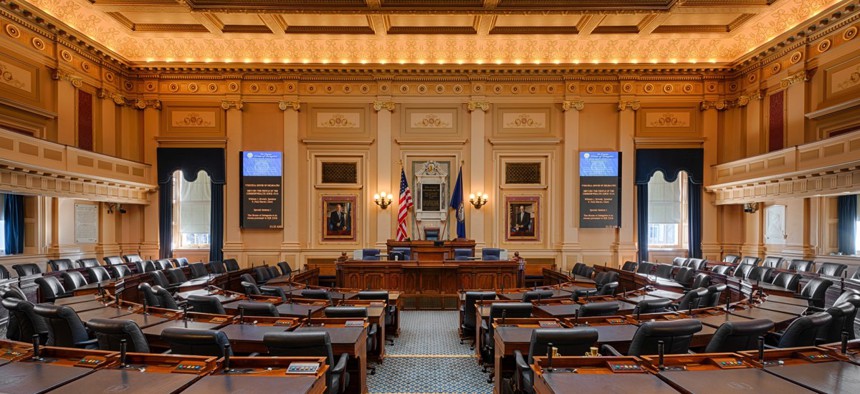Virginia Gov. Calls for Review of Driver’s License Suspension Practice

The House of Representatives chamber in the Virginia State Capitol.

Connecting state and local government leaders
Gov. Terry McAuliffe’s three-part criminal justice reform proposal would also raise Virginia’s felony theft threshold for the first time since 1980.
Virginia Gov. Terry McAuliffe announced on Tuesday that he will push for a package of three “common sense” criminal justice reforms that includes eliminating the policy of suspending driver’s licenses for residents who are unable to pay court fees.
This particular state practice is already the subject of a lawsuit being filed by the nonprofit Legal Aid Justice Center, which argues that the policy disproportionately hurts the poor by preventing them from being able to get to work, thereby making it even harder to pay off the fees they owe. The suit claims that nearly 1 million state residents have had their licenses suspended as a result of unpaid court costs or fines.
"That means that that factory worker from Floyd County whose job is 30 miles away in Christiansburg cannot lawfully drive to work and earn money to pay off those fines," McAuliffe said on Tuesday, according to the Richmond Times-Dispatch. "It makes no sense."
Along with the license suspension proposal, McAuliffe is also calling to make it easier for more offenders to petition the courts to prove their innocence if new DNA evidence becomes available. McAuliffe’s proposed legislative changes would allow defendants to petition courts on the basis of new evidence, even if they pleaded guilty to the crime.
The third item on McAuliffe’s reform agenda would raise the state’s felony larceny threshold to $500. As it stands, Virginia’s threshold of $200 is the lowest in the nation—a threshold that has remained stagnant since it was first established in 1980.
Critics of raising felony thresholds typically argue that higher cutoff points would cause property crime rates to increase. The Pew Charitable Trusts, however, examined crime trends in 23 states that have raised their thresholds, and found that increasing the felony theft threshold has had no impact on property crime or larceny rates.
This isn’t the first time Virginia has attempted to change its felony theft cutoff point. Just last February, the state’s GOP-controlled Senate passed SB 1234 which would have raised the threshold to $500, but the bill died in a House subcommittee.
“The changes we are proposing today seek to hold offenders responsible for their crimes in a way that maintains opportunities for rehabilitation and future productivity,” McAuliffe said at Tuesday’s announcement.
It remains to be seen whether these three reform measures will be able to gain bipartisan support when Virginia’s General Assembly convenes on Jan. 11.
Quinn Libson is a Staff Correspondent for Government Executive’s Route Fifty.

NEXT STORY: ‘Montanans Have Lost Decades of Public Information’; New Year Brings Higher Minimum Wage





